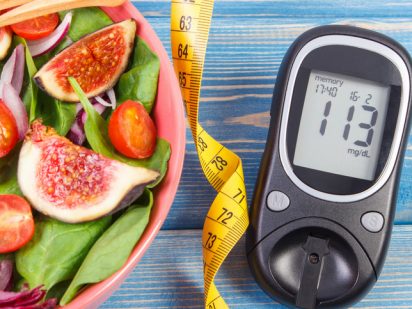Type 2 diabetes, the most common form of diabetes according to the American Diabetes Association, is characterized by high blood sugar, insulin resistance, and a relative lack of insulin. While some can control blood sugar levels through healthy eating and exercise, others may need medication or insulin to manage it.
More than 34 million Americans – or one in 10 – have diabetes, and approximately 90 to 95 percent of them have type 2 diabetes, the Centers for Disease Control and Prevention (CDC) said.
It is also believed that one-third of those with type 2 diabetes are unaware they have it. As there are no symptoms with type 2 diabetes, early screening can help avoid serious complications of the disease, including hyperglycemia which is associated with long-term damage to the eyes, kidneys, nerves, heart, and blood vessels. People with undiagnosed type 2 diabetes have a significantly higher risk for stroke, coronary heart disease, and peripheral vascular disease.
Common risk factors include:
- Family history of diabetes. This includes people with parents and/or siblings with diabetes.
- Overweight. They have a body mass index equal to or greater than 25.
- Habitual physical inactivity.
- Race/ethnicity. This includes African Americans, Hispanic Americans, Native Americans, Asian Americans, and Pacific Islanders.
- High blood pressure. Equal to or greater than 140/90 in adults.
Screening for diabetes is recommended at three-year intervals, beginning at age 45, especially for people who are overweight or obese, the American Diabetes Association said. However, if multiple risk factors are present, screening should be done earlier and more frequently. The U.S. Preventive Services Task Force recommends that adults with high blood pressure or high cholesterol should be screened for type 2 diabetes to reduce cardiovascular disease.
If the screening proves positive, there are several options to help prevent serious problems and help manage blood sugar. Those options include medication along with a diet, regular exercise regimen, and a lifestyle program.
One such program is Weigh 2 Change, which is available through the Trinity Health Center for Diabetes Education. Weigh 2 Change is a year-long, evidenced-based program that helps people make positive lifestyle changes aimed at improving health and preventing type 2 diabetes. Based on the National Diabetes Prevention Program established by the Centers for Disease Control and Prevention, the program incorporates key elements recommended by the CDC, including nutritional and exercise counseling, group support, and the use of trained lifestyle coaches.
“The way to delay or prevent diabetes is through weight loss and increased physical activity, which are two key components in this program,” explained clinical dietitian Michelle Fundingsland, RDN, LRD, who leads the program. “It’s a one-year commitment, which might seem extensive, but our goal is to promote lasting lifestyle changes, which don’t happen overnight.”
Research shows that people can lower their risk for type 2 diabetes by 58 percent by losing 7 percent of their body weight and exercising moderately 30 minutes a day, five days a week.
Participants interested in the program should attend the Session Zero informational meeting on January 19, 2021, from 12:00 to 1:00 p.m., at the Trinity Community Conference Room located at Health Center – Town & Country. Sessions are slated to start on February 2, 2021, and may be held in-person and/or virtually. During in-person meetings, participants should wear a mask and social distance. Please note that sessions may be postponed or canceled due to the COVID-19 pandemic.
“People who attend Session Zero will complete a readiness-to-change questionnaire to help them determine whether the program is right for them,” Fundingsland said. “The questionnaire will help participants assess their readiness for the program, looking at time commitment and if they are ready to change eating and physical activity habits.”
To participate in Weigh 2 Change, participants must meet the following criteria:
- At risk for, or have, prediabetes
- At least 18 years of age
- Overweight
- Do not currently have diabetes
- Are not pregnant
People who decide to commit to the program and are not covered by Medicare will be charged a fee of $220, which covers educational sessions and materials for the entire year. For more information or to register for Weigh 2 Change, call the Trinity Health Center for Diabetes Education at 701-857-5268.

